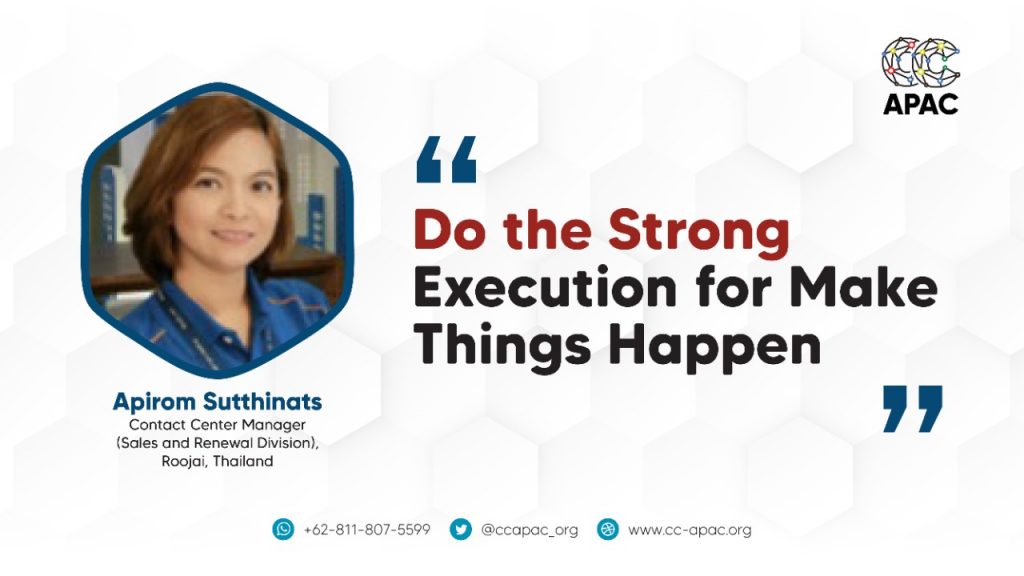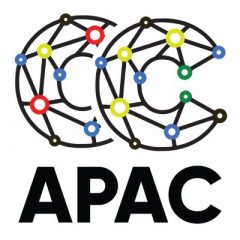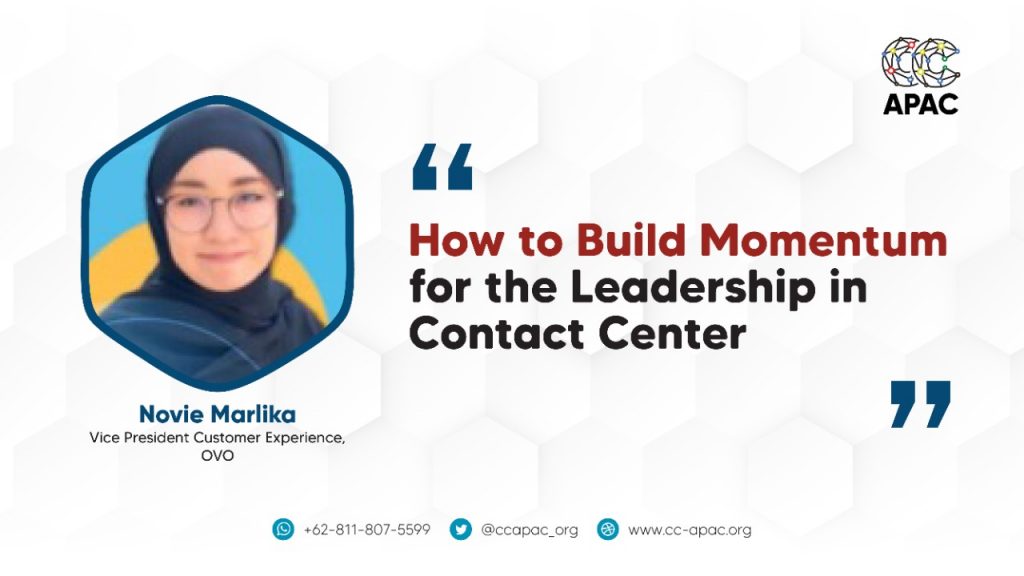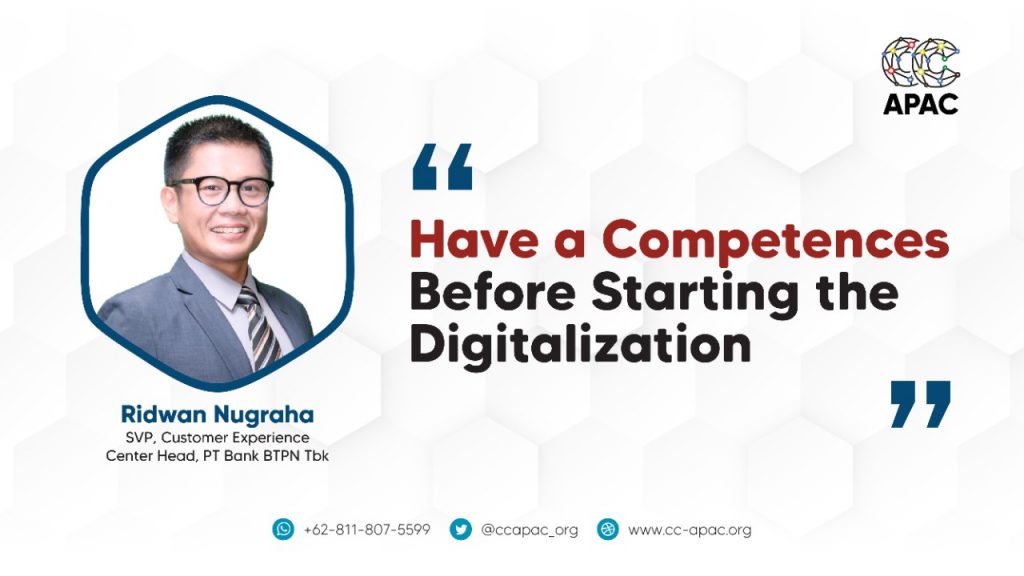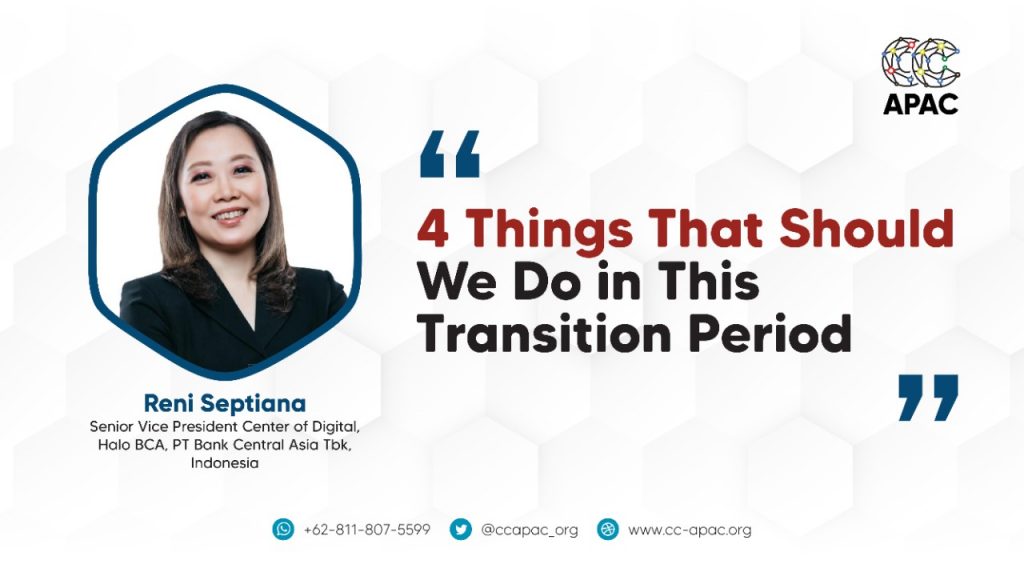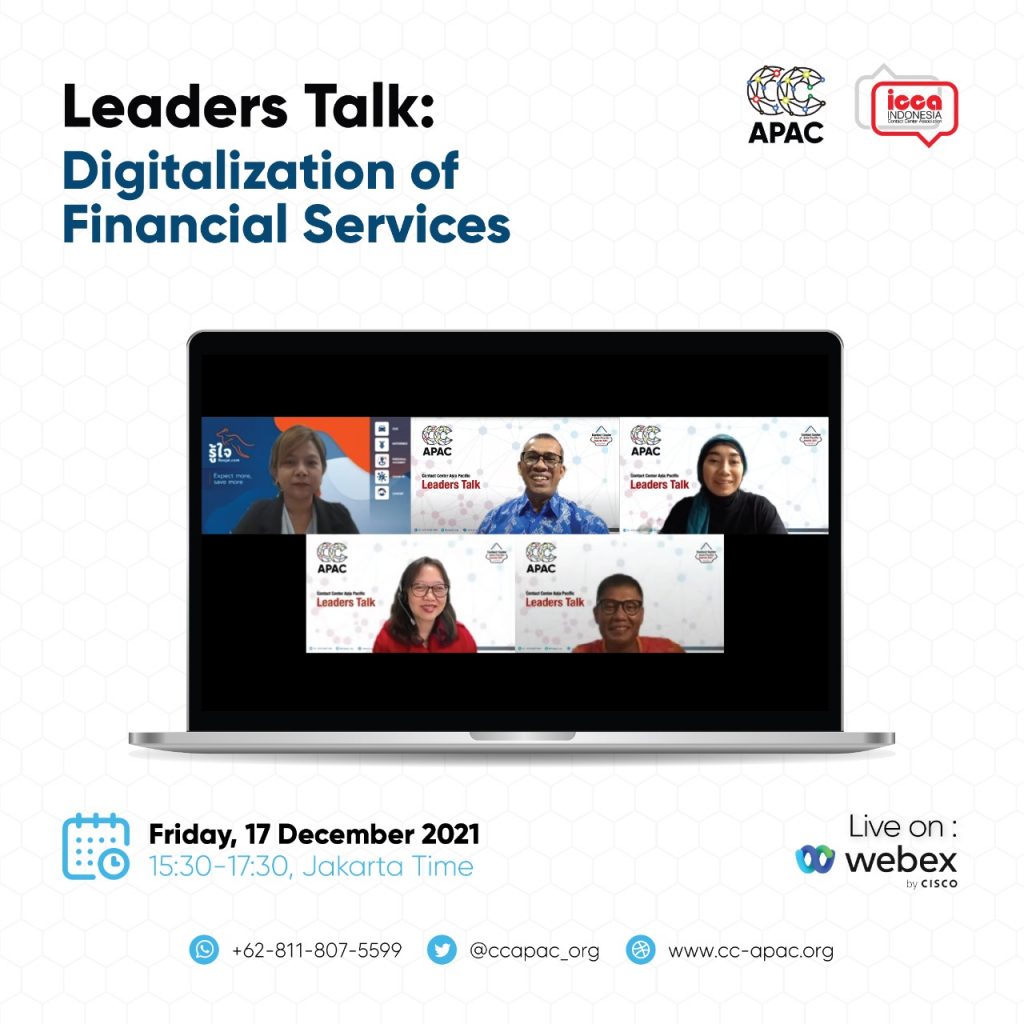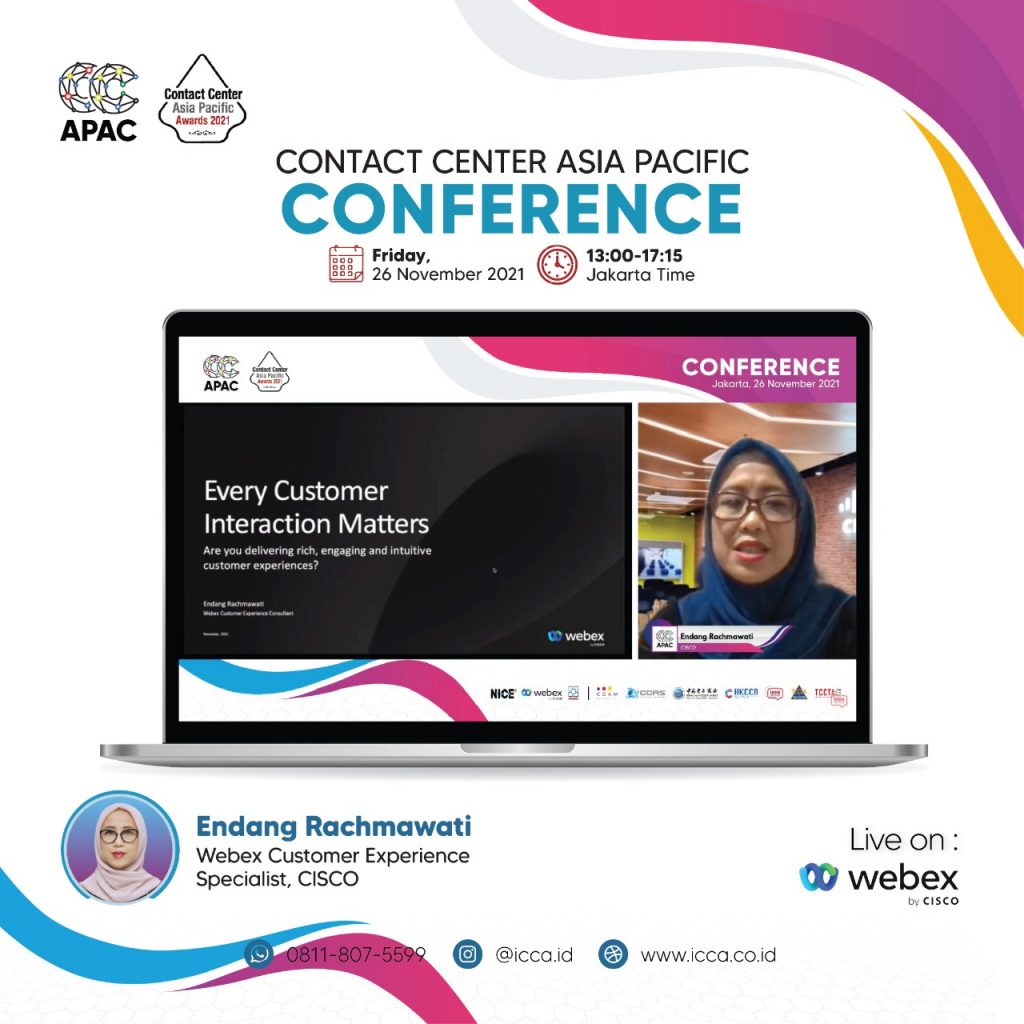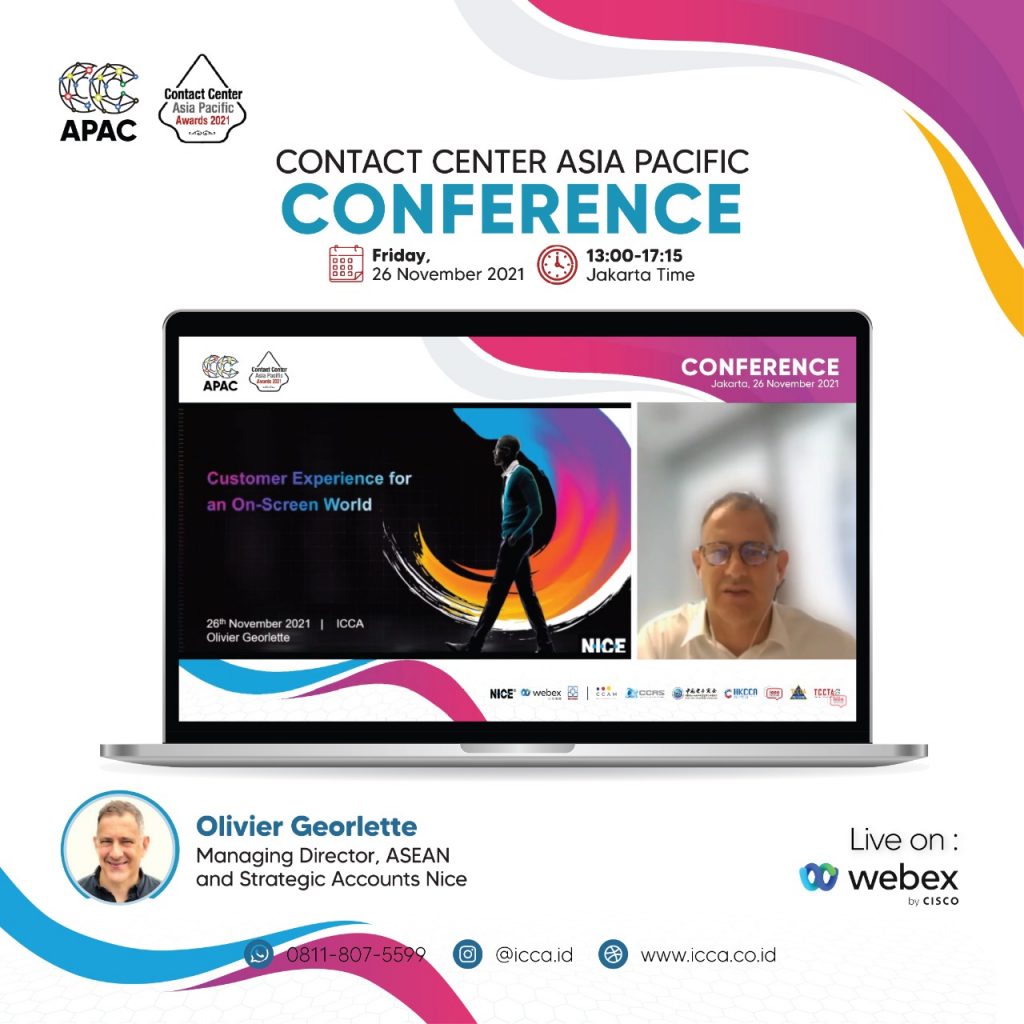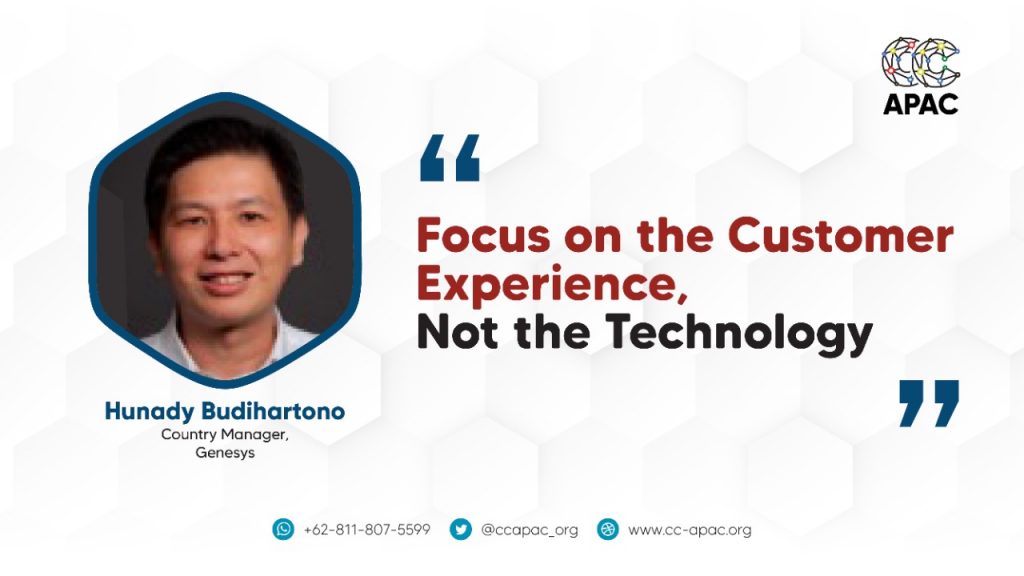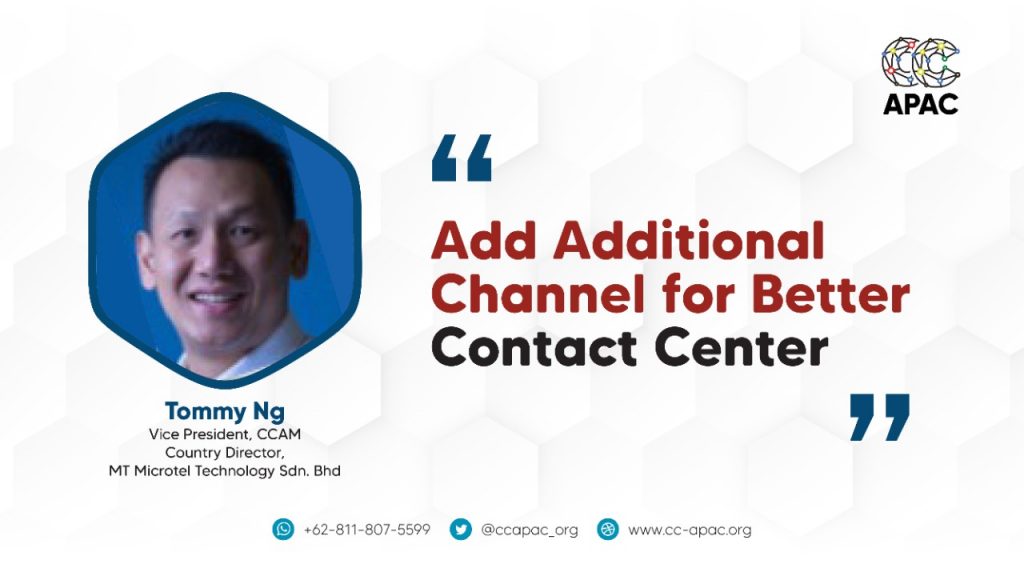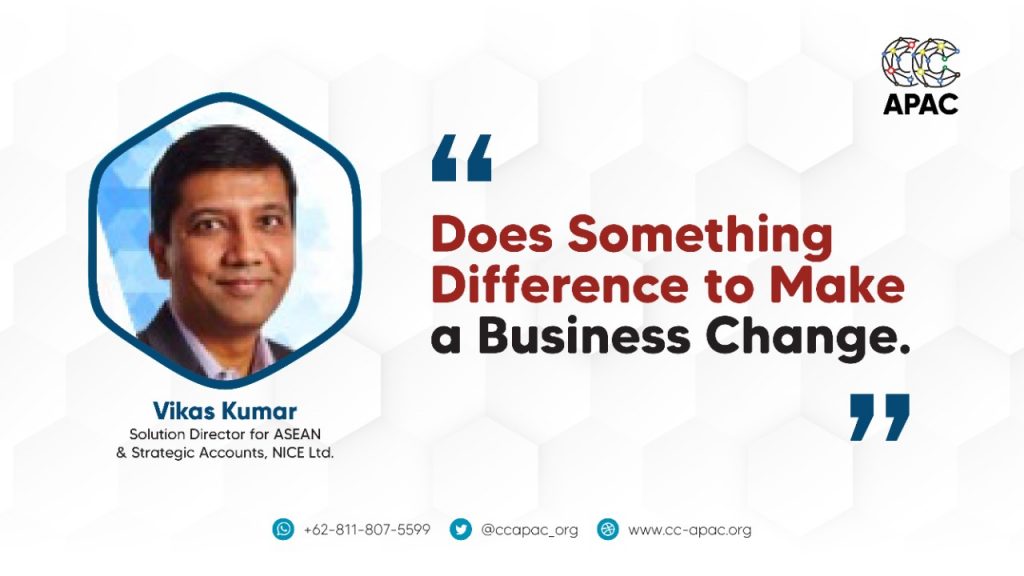Friday, December 17, 2021 – The seventh Leaders Talk hosted by CC-APAC in collaboration with Verint discussed “Digitalization in Financial Services,” by inviting four professional speakers to the Asia Pacific contact center.
This discussion was presented by Andi Anugrah, Chairman of ICCA Indonesia. The first panelist is Reni Septiana, Senior Vice President Center of Digital, Halo BCA, PT Bank Central Asia, Tbk, Indonesia. The second panelist is Ridwan Nugraha, SVP, Customer Experience Center Head, PT Bank BTPN, Tbk, Indonesia. The third is Novie Marlika, Vice President Customer Experience, OVO, Indonesia. And the last one is Apirom Sutthinats, Contact Center Manager (Sales and Renewal Division), Roojai, Thailand.
The discussion is started by talking about the challenges and opportunities of digitalization in financial services. First, Novie Malika said that OVO are contribute the solutions to this challenge, especially financial literacy and inclusion. Why financial services? Because she thinks, financial literacy is an important thing in the country for the economic process. “The challenge is always to find the right products and services that are easy to use, secure, and affordable,” said Novie.
Novie also said that is why OVO particularly adopts the open ecosystem approach, such as being open to collaborating with other stakeholders. By doing this, Novie thinks OVO can expand from digital payment, also can over-like investment insurance bonds to meet the growing needs of the community with ease.
Not only that, Novie explains that is basically on the challenges but the way OVO sees the digital payment as a gateway to the larger digital financial ecosystem, whereby it is an opportunity for financial institutions. Then, “During these four years, I think, OVO has received a positive acceptance amongst Indonesian people and to the general public itself,” said Novie. She also thinks OVO is committed to continuing to bring financial literacy and inclusion through accelerating digital transformation in Asia.
There is another challenge that Apirom Sutthinats shared. She said the challenge is they are really difficult to encourage and educate people. They are too difficult to tell everyone that online services were the best way to serve people for this time. This online makes flexible, and people can manage what they want anytime.
She also shared that when the pandemic comes, she sees that the people’s behavior is changing. People are mostly more on their mobile phones and that is a mobile phone becomes the more essential into their life. Then, she advantages that situation now. They take the opportunity, such as improve a lot of customer experience, customer engagement, customer relationship, and also customer satisfaction.
She also explains that people are not easy to adapt or accept this fast change, especially in this time everything is self-care online. “What do we need to do to handle these challenges, when we do change anything online?” ask her. Before we share with our customers, we need to prepare the training and ensure our staff clearly understand the rationale behind that change, such as what is the benefit to them? And also the benefit to the customer.
Ridwan Nugraha explains what the challenges and opportunities during this pandemic situation are. He said that the challenge is how we can both create our unique value proposition. For example, the product is easier, smarter, safer, like finance for their daily activities via smartphones.
The opportunities of this are very huge. He talks about the megatrends, for example, such as the smartphone penetration, internet penetration, and Indonesian population for the Asia Pacific is more than 270 million, and also this is dominated by the millennials.
“So, I think it’s it’s quite promising that Indonesia is still an emerging country with very high potential for digitalization, as well as digital finance,” said Ridwan. He calls it of opportunity as well as, “Peluang sekaligus panggilan.”
The last, opinion from Reni Septiana. Reni said that there are two challenges they are facing. First, namely internal challenges. This is related to the coefficient of user-friendly, secure, and safe digital services. The second is an external challenge, like dealing with customer acceptance who depends on all of the digital services we offer.
Reni also said that there are still new opportunities that they can optimize, even BCA is during those hard challenges. “The Digital Banking strategy has enabled us to get the business opportunities in the middle of a fast-moving customer transition into digital banking transactions,” said Reni.
BCA keeps developing and making innovations, especially digital best initiatives for banking transaction services, such as mobile banking. Furthermore, this digital banking transaction plan avoids physical contact in the transaction conducted through mobile banking, such as online account opening.
At the end of the discussion, all panelists give their closing remarks and tips about the development of digital finance in Indonesia. Are you curious about want kind of tips that they are shared? Then, stay tuned for another article on the CC-APAC website. (ANF)
Like this:
Like Loading...
